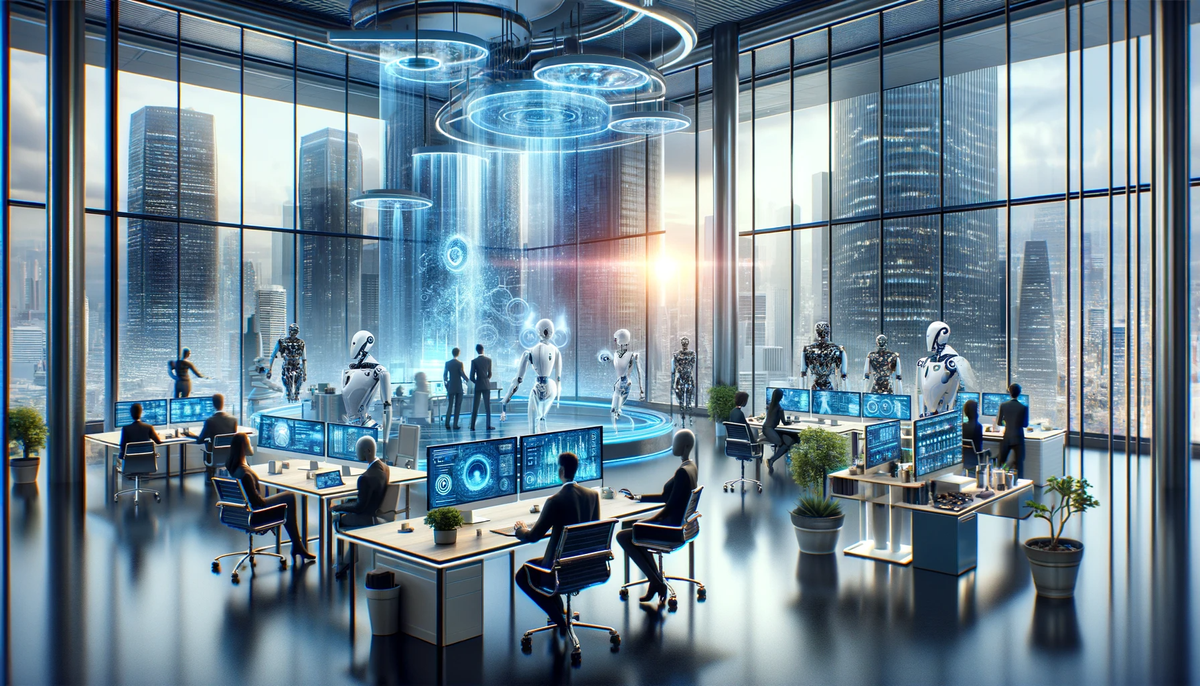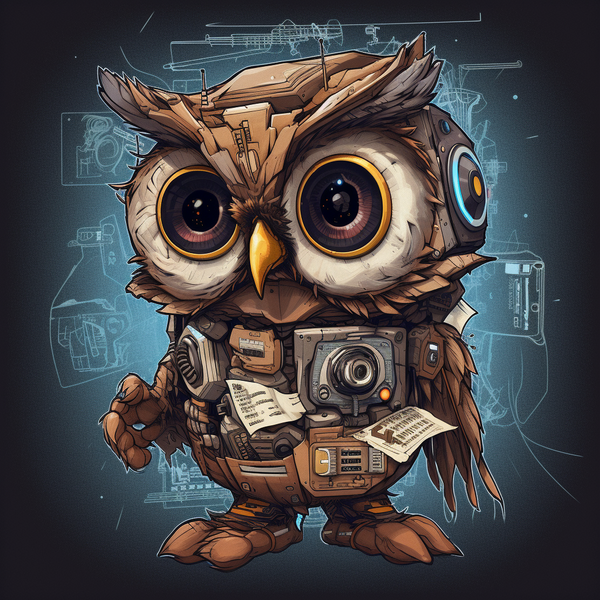In this era of rapid change, artificial intelligence is revolutionizing industries, changing how we work, communicate, and think - marking a new era in the future of work.
Conversational AI systems like ChatGPT, known for its ability to efficiently generate content, are at the forefront of this productivity revolution.
But is this AI-fueled revolution only a short-lived fad?
Far from it.
These emerging technologies are becoming integral to our workflows - our pivotal ally in the hybrid work environment, enhancing productivity in both in-office and remote work environments, and reshaping the landscape of modern productivity.
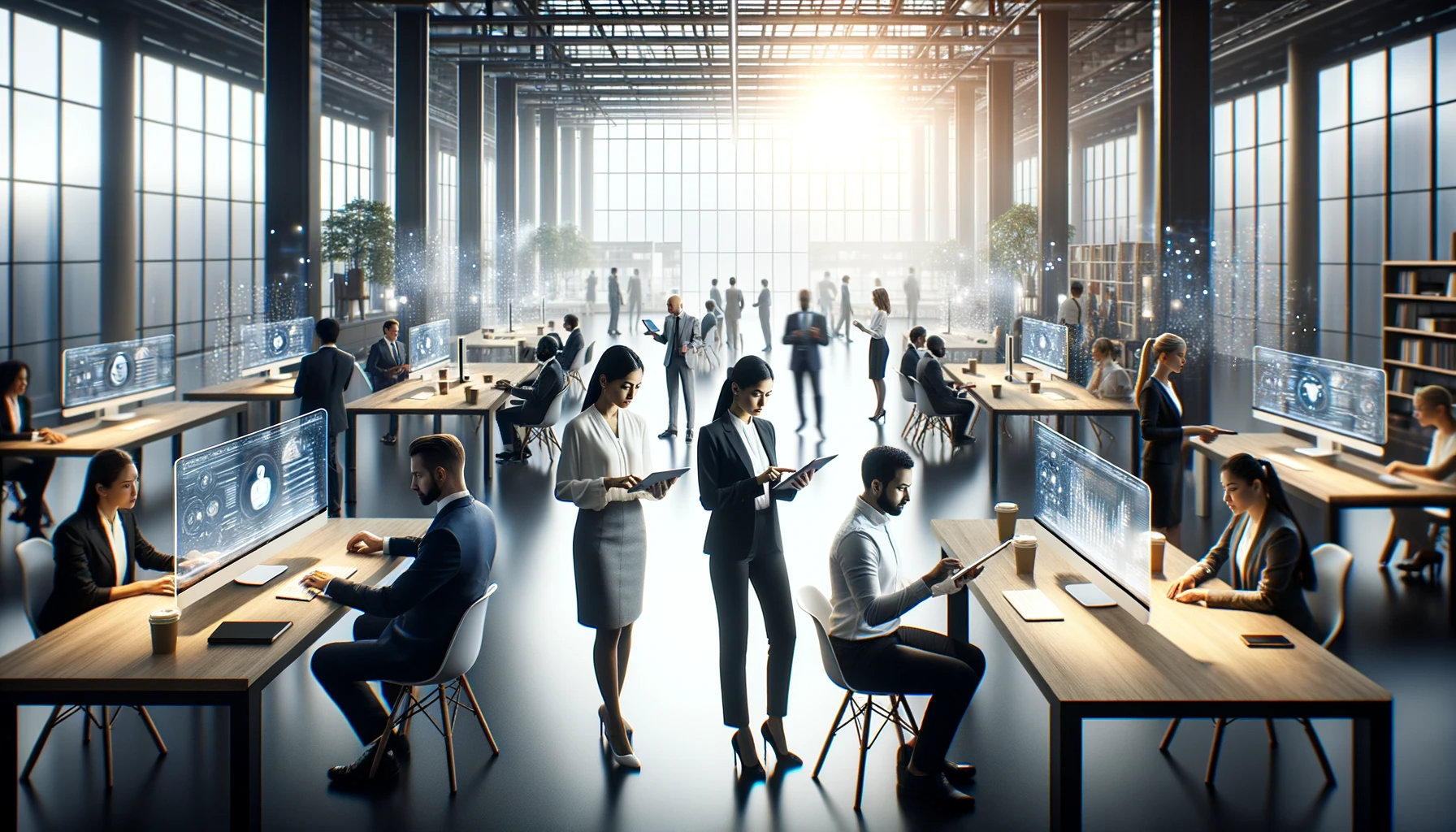
The Evolution from Human-Only to AI-First Workflows
Although not everyone has fully embraced this evolution, the transition from human-only to AI-first workflows marks a significant cultural change in our engagement with technology in the digital era.
It's not just about adopting AI tools, but transforming how we collaborate, create, and organize ourselves in the workplace. AI democratizes digital collaboration, enhancing communication and teamwork across all business levels.
This leads to a reinvented workspace where all workers, regardless of technical background, can excel.
This transformation isn't just about what we do, but more profoundly, about who we are in these AI-augmented environments.
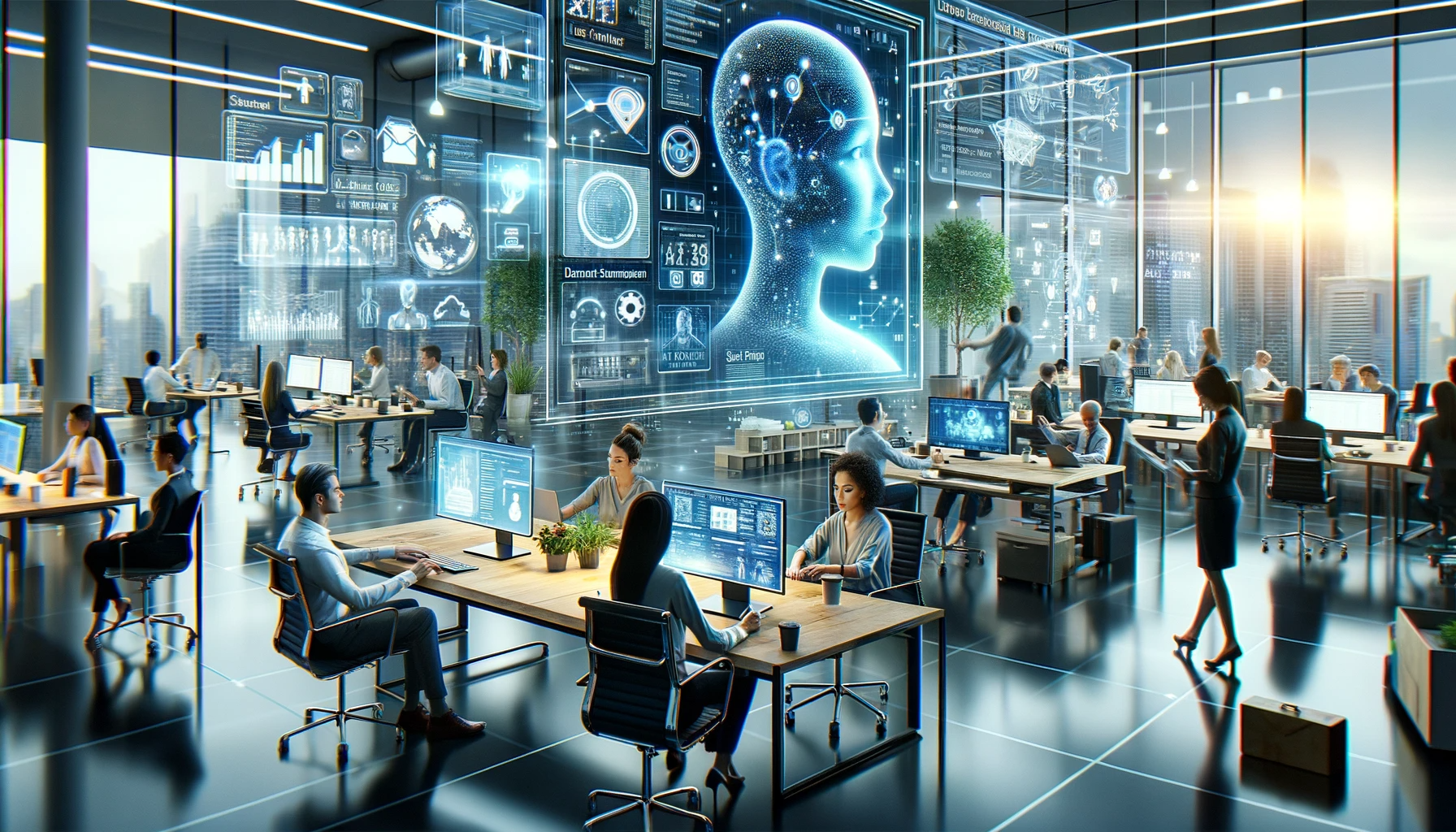
The Drawbacks of Human-Only Workflows
The traditional human-only workflows, characterized by manual and repetitive tasks, are rapidly becoming outdated. As AI reshapes our professional roles, the focus shifts from "doing" to "being," emphasizing human skills like creativity, connection, and authenticity.
Professionals historically spent much time on administrative tasks such as email management, document summarization, research, and scheduling.
These tasks, while necessary, consume energy without adding significant value. With knowledge workers reportedly losing over 4 hours a day to such tasks, the necessity for a more efficient approach has become clear - paving the way for AI integration.
The Rise of AI-First Workflows for Future Jobs
The rapid embrace of ChatGPT highlights knowledge workers' urgent need for more time, with AI emerging as a vital solution to overflowing inboxes and endless to-do lists.
AI streamlines these tasks, allowing more concentration on meaningful work.
For example, instead of laboring over each word in crucial communications, providing AI with context and tone enables quick creation of drafts, reducing a 20-minute task to 5 minutes of refinement.
AI allows each person, whether employers or employees, to offload rote tasks and prioritize time on strategy and creativity.
This advancement enhances current job roles while also creating opportunities for other careers. Now, workers can concentrate on more complex, creative tasks that AI cannot perform.
This demands the development of new workforce skills and competencies, adapting to this AI-integrated work environment.
Time is our most precious currency.
The old paradigms of managing time are giving way to newer, more efficient systems.
As these AI systems seamlessly integrate into businesses, workplaces and daily routines, an evolution from human-only processes to AI-first workflows is evident.
This transition, influencing the workplace culture, isn’t just about speed and efficiency, but about reimagining our relationship with time and maximizing the potential for success in our roles.
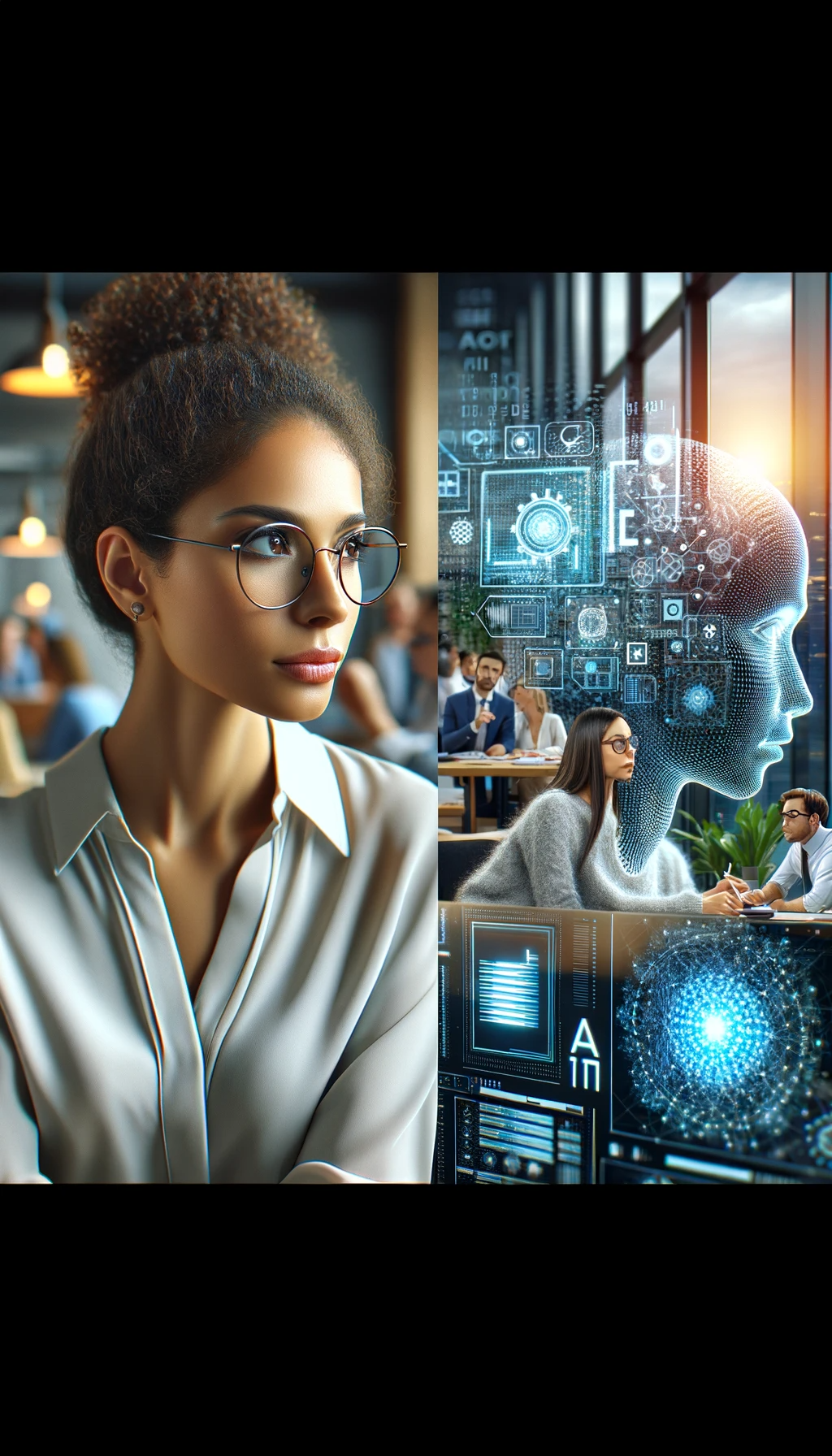
Time Leadership: An Innovative Concept that Redefines our Approach to Time
Time Leadership, countering the old practice of overextending oneself, promotes a work style in sync with natural productivity patterns, increasingly vital for the future of work.
This ensures leaders not only excel in their duties but also maintain an invigorating work-life equilibrium. The four domains of time management – spiritual, mental health, emotional, and physical – are pivotal to understanding this balance.
Time Leadership transcends traditional time management by uniquely blending work and life, crucial for workforce evolution.
All employers and managers know, prioritizing tasks is essential.
By adopting Time Leadership, we can direct our attention to pressing issues, optimize our time more judiciously, improve work-life harmony, and elevate and sustain efficiency. This is the future of work.
AI's role in transforming work dynamics is vital - It enhances time management by automating routine tasks, freeing up time for priorities, and aiding informed decision-making with its pattern recognition abilities, while being mindful of potential biases.
The benefits are numerous, including its use in strategic thinking, feedback simulation, and content creation. It elevates organizational optimization and success. It's integration into various services streamlines operations and enhances efficiency.
Tools like Anthropic’s Claude, for example, have revolutionized marketing content creation, providing AI-driven insights that improve strategies and inform training.
But there's more…
Utilizing AI tools like Reclaim and ChatGPT, we can streamline task management and quicken everyday tasks. However, in this AI-centric evolution, the human element is essential.
It's vital to maintain healthy habits, establish boundaries, and effectively maintain work-life balance. We must be aware of AI's addictive potential and use it responsibly.
By using it responsibly, we open the doors for more strategic and creative activities, leading to a more fulfilling professional and personal life for employees and their employer.
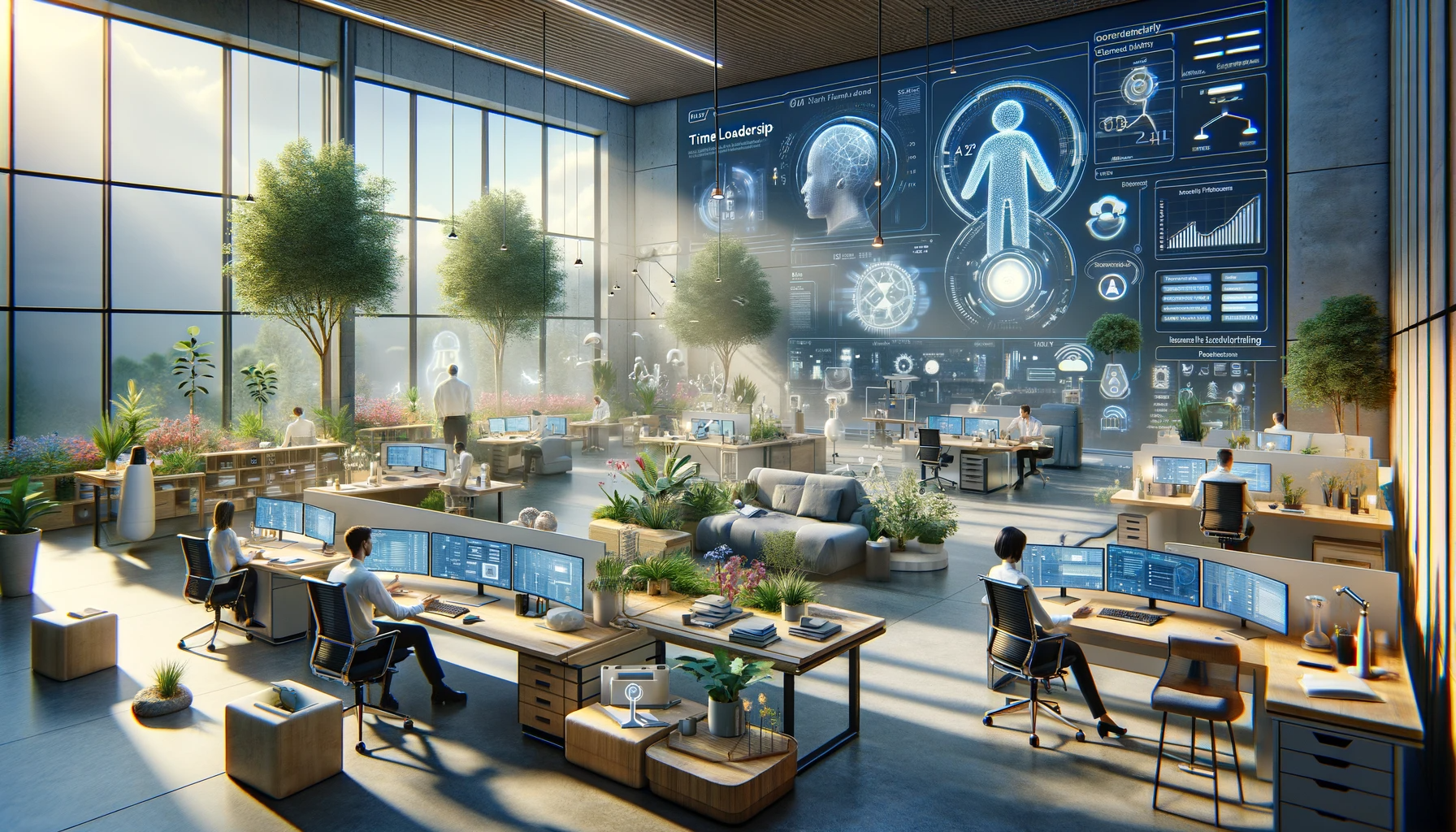
Reimagining Workflows in the Age of Machine Learning
As AI becomes increasingly integrated into every aspect of our work, understanding its impact on both broad industry trends and daily routines is essential.
The AI-powered workplace is now a reality, already shaping the future of work. High-performing employees can use AI to optimize tasks, increase output, so they can focus on soft skills and value-driven work.
Consider the realm of email communication, an essential yet time-consuming component of our modern work culture. The average professional spends a considerable portion of their day crafting emails, striving for the right tone, clarity, and precision.
Yet, what if AI could reimagine this entire workflow?
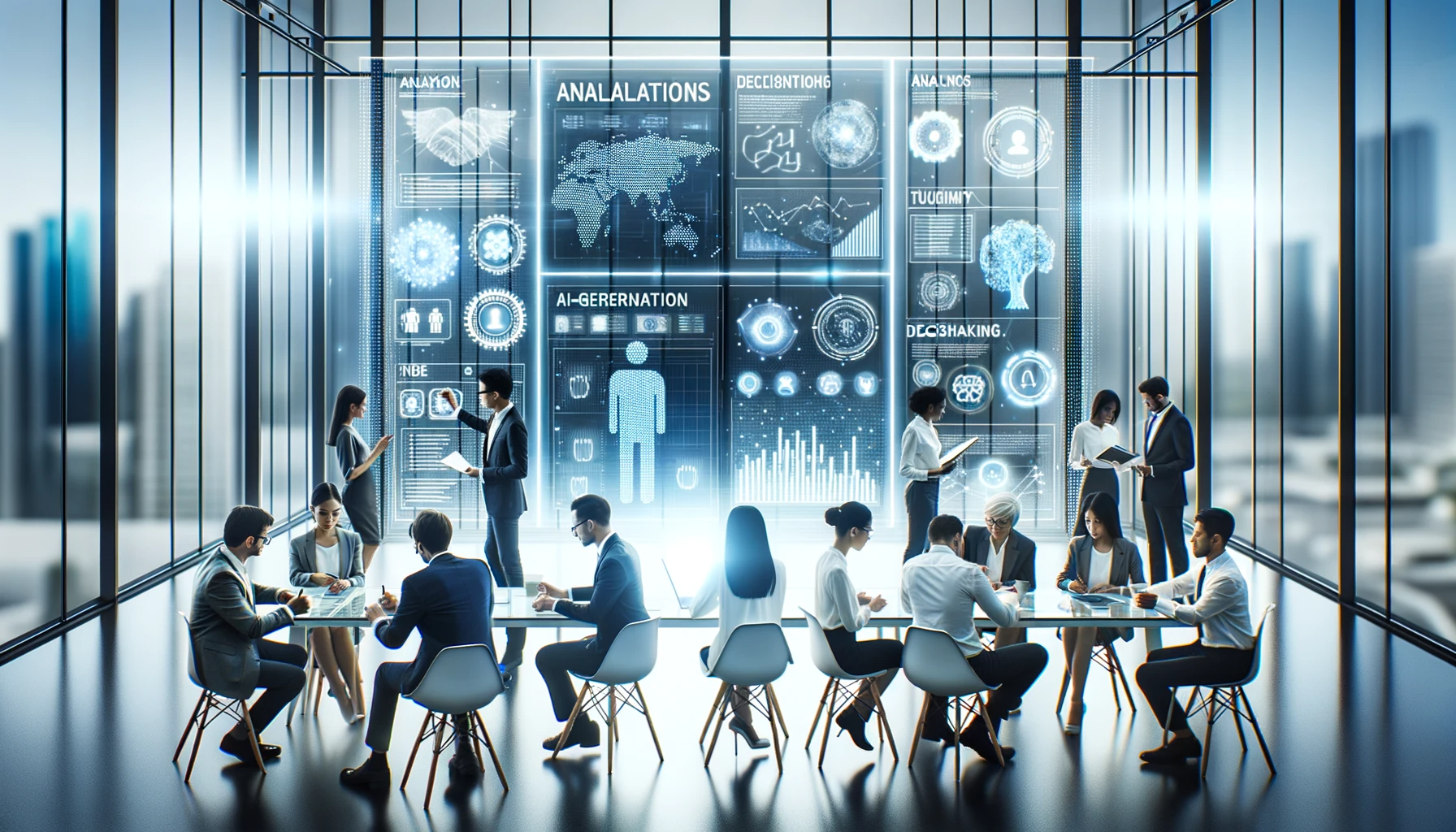
Audit Daily Tasks to Identify Automation Opportunities
With the transformative potential of AI in email management evident, it begs the question: What other daily tasks and jobs can benefit from such augmentation?
In transitioning to an AI-enhanced workplace, employees should review their daily activities, evaluating their value, impact, and enjoyment, and identify routine tasks like meeting scheduling, invoice processing, and bulk communications for AI automation.
This auditing is beneficial for workers, allowing them to focus on more strategic and engaging aspects of their roles. It also identifies areas where employees may need additional training to effectively use AI tools.
Part of mastering time leadership is recognizing that AI can evolve our relationship with time by improving or eliminating non-essential aspects of our daily workload.
Look for low risk ways to free up time with AI.
By identifying such tasks and integrating AI tools, you're not just saving time; you're reinventing your workflow, freeing up mental bandwidth, and paving the way for innovative thinking and value-driven work - These are the right skills for humans to practice to stay relevant in the near future of work.
The era of successful AI collaboration is upon us. Embrace it, experiment with it, and let it elevate your daily grind to unparalleled heights.
Outsource Rote Work to AI
By outsourcing repetitive administrative work to AI assistants, we free up time for meaningful work demanding our human skills. This transition is a cornerstone in the evolution of the future of work, where AI's role is to complement human capabilities.
This includes higher-value activities like strategic planning, creative problem solving, relationship building, and innovative thinking - all requiring specialized skills. AI excels at rote work, while humans offer ingenuity, empathy and judgment.
Rather than compete, we must strategically collaborate with these thinking machines.
Realign Existing Employees Roles
Realigning employee roles in the AI-enhanced workplace focuses on human strengths like empathy, creativity, judgment, and relationship building.
As AI streamlines tasks like email management, we're prompted to reconsider how we use our time, shifting towards areas where AI falls short.
This allows workers to engage more deeply in aspects of their careers where they can uniquely contribute, and create meaningful impact, helping them to thrive in their roles.
With AI handling routine tasks, there’s more scope for innovation, collaboration, ethical discernment, and emotional intelligence. Emphasizing these human-centric skills can boost motivation and counteract disengagement, marking a significant shift from traditional work paradigms.

Redesign Workflows from Scratch with AI Collaboration in Mind goes Beyond Integrating Tools into Existing Systems
It's a complete paradigm shift.
Just imagine AI managing your emails, meetings, and content creation, liberating hours for you and your organization as a whole.
This could shift focus to previously sidelined high-impact projects, transforming workflows and possibly creating new jobs for workers centered on innovation and strategic thinking.
This presents an opportunity to tailor workflows to individual strengths, skills, and passions, aligning work with personal interests - all made possible by AI.
Apply AI Creatively to Unlock New Possibilities
Applying AI creatively transcends mere automation, enhancing human workers capacities and enabling previously unimaginable scenarios, especially with the emergence of remote work, by closing gaps in distance and efficiency.
AI's ability to process data allows for hyper-personalized customer services on a large scale, further reshaping the future of work.
This opens up new employment opportunities and evolves existing ones, aiding business leaders in analyzing customer data for deeper, strategic relationships and effective remote team management.
It creates an environment where workers can thrive by leveraging AI for innovation and improved efficiency.
The only limits are our imagination.
Just consider how AI can amplify our workers talents and skills.
AI helps reframe our relationship with time, guiding organizations towards a future rich in innovation, deeper relationships, and meaningful work.
Guiding AI Ethically to Augment Potential
In the AI-powered future of business, a key aspect of the future of work isn't merely in automating tasks, but in augmenting human potential. This includes adapting to the increasing trend of hybrid work, where AI can play a pivotal role in balancing the demands of both in-office and at-home settings.
Retrofitting AI into current organization processes without a foundational review may seem like a simple path, but it often falls short of tapping into AI's full potential.
To truly harness this machine learning potential, organizations must embrace a holistic, ground-up reimagining of how we collaborate with AI in our daily workflows.
Here are steps to integrate AI effectively:
- Audit daily tasks - Categorize activities based on value, impact and enjoyment. Identify mundane tasks ripe for automation.
- Outsource rote work - Delegate repetitive administrative tasks to AI to free up mental bandwidth for meaningful work.
- Realign around relationships - With AI handling routine communications, prioritize relationship-building and creative problem solving.
- Redesign workflows - Take a clean-sheet approach to reinvent workflows optimized for human-AI collaboration.
- Apply AI creatively - In addition to automating tasks, explore innovative scenarios like hyper-personalized customer interactions.
- Monitor for misuse - Ensure AI implementations align with company values. Guide AI ethically to augment human potential.
- Enhance human work - Look for ways AI could support tasks requiring emotional intelligence, creativity, strategy.
- Continuously learn - Stay up-to-date on responsible AI best practices as capabilities rapidly evolve, and proactively prepare for how your job might evolve.
- Question assumptions - Regularly analyze if workflows over-rely on AI where human nuance is needed.
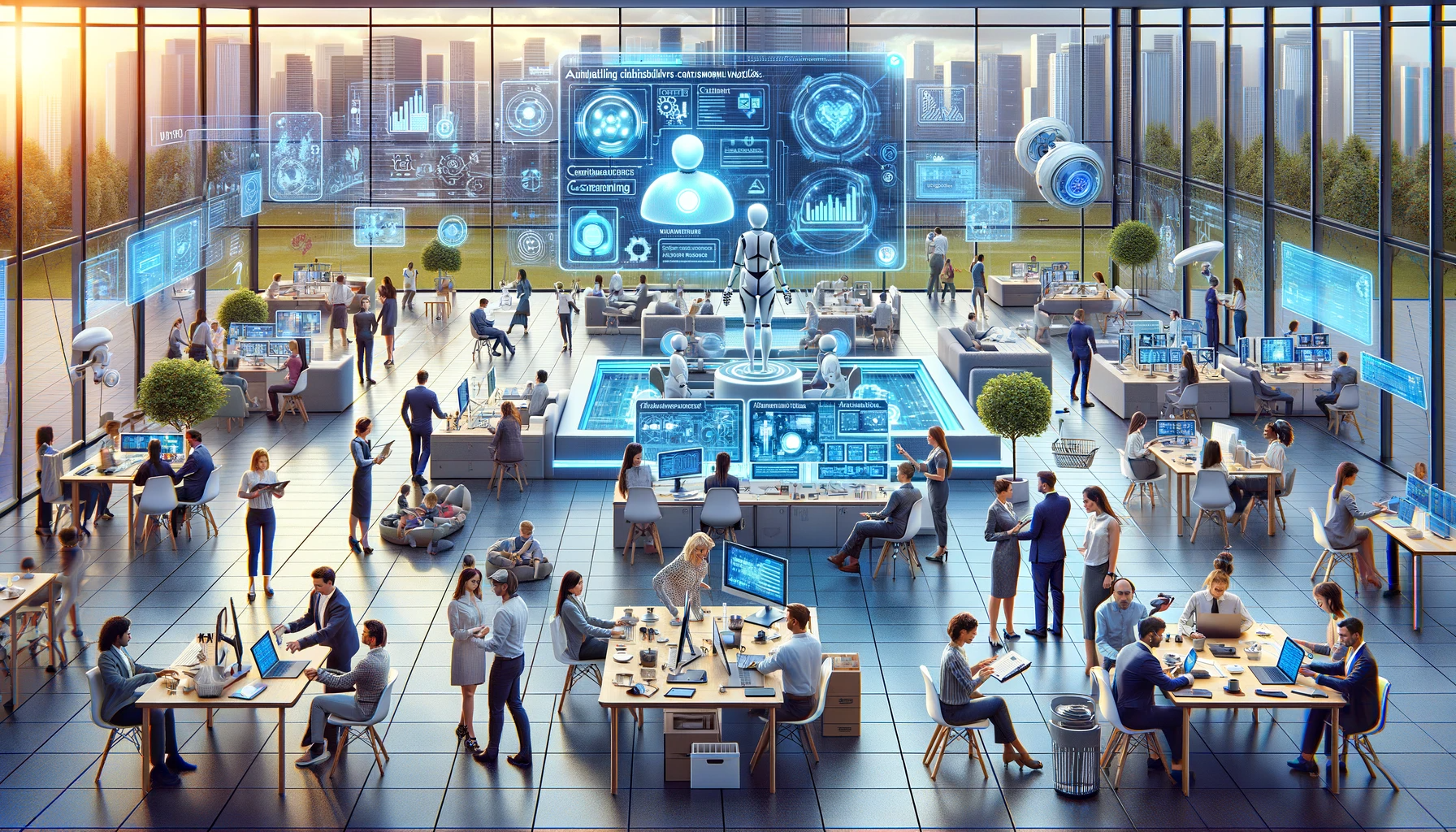
Embracing the Future goes Beyond Mere Technology Integration...
It involves visionary, careful, and purposeful action.
The AI-powered workplace era demands a deeper understanding of collaboration and organizational roles in society. Rethinking human-AI interaction leads to not just streamlined business processes, but also new efficiencies, job opportunities, and remote working styles.
With responsible innovation and strong ethics, we are on the cusp of unlocking immense human potential.
Let's build a future of work that excites us!


